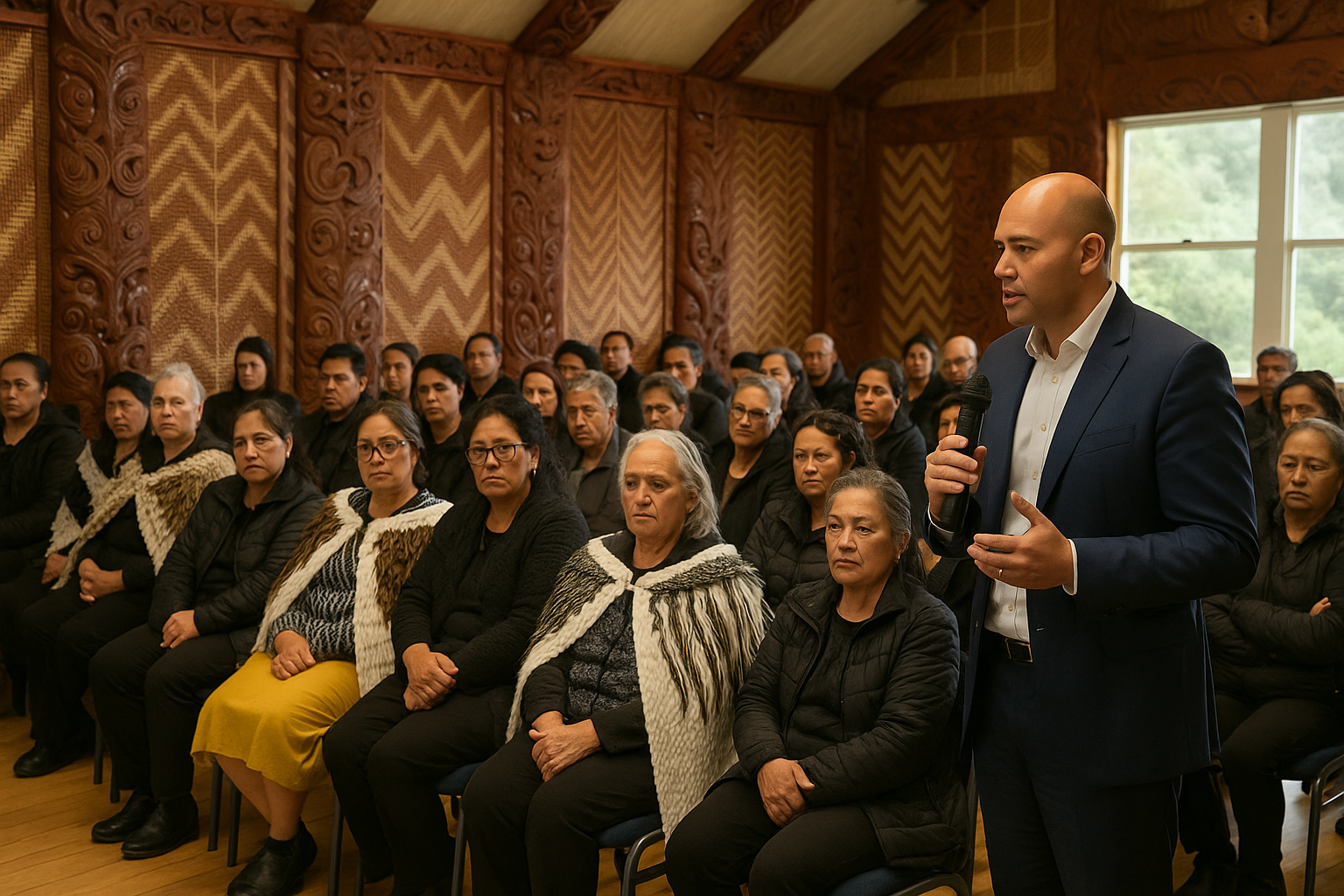New Appointments to Conservation Bodies Strengthen Land Protection Efforts
Potaka emphasised the importance of both organisations in safeguarding biodiversity and ecosystems, while ensuring landowners remain active partners in conservation.

- Country:
- New Zealand
Conservation Minister Tama Potaka has announced a series of new and returning appointments to two key organisations that play an essential role in protecting New Zealand’s natural environment: the Queen Elizabeth II National Trust (QEII Trust) and the Ngā Whenua Rāhui Komiti.
The appointments are intended to strengthen conservation partnerships with private landowners and Māori landholders, supporting long-term protection of ecologically and culturally significant landscapes.
Supporting Conservation Across Private and Māori Land
Potaka emphasised the importance of both organisations in safeguarding biodiversity and ecosystems, while ensuring landowners remain active partners in conservation.
“The Queen Elizabeth II National Trust and Ngā Whenua Rāhui play critical roles in supporting landowners and protecting conservation values,” he said. “Their mahi encourages private entities to invest in nature and Māori landowners to safeguard taonga while maintaining tino rangatiratanga. I am delighted to confirm such excellent appointments to strengthen both bodies and their work.”
Leadership at the QEII National Trust
The QEII Trust, an independent charitable trust, has worked for decades with private landowners to protect areas of ecological, scenic, and cultural significance through covenants in perpetuity. These covenants ensure that important landscapes and habitats are preserved regardless of changes in ownership.
The new appointments include:
-
Alan Livingston, reappointed as Chair. Livingston has a long-standing record of leadership in local government and conservation, and his reappointment ensures continuity for the Trust’s strategic direction.
-
Debbie Hyland, newly appointed as a trustee, bringing fresh expertise and commitment to advancing the Trust’s work with private landowners.
The QEII Trust currently partners with thousands of landowners nationwide, with covenants protecting more than 190,000 hectares of land, including rare forests, wetlands, and culturally significant sites.
Strengthening Ngā Whenua Rāhui
The Ngā Whenua Rāhui Komiti plays a complementary role, providing funding and support for the protection of Māori-owned land through kawenata (conservation covenants). Unlike traditional arrangements, kawenata agreements recognise and uphold Māori ownership and governance, ensuring tino rangatiratanga while preserving biodiversity and native ecosystems.
The Komiti will welcome:
-
Mere George (reappointed), ensuring continuity and deep cultural knowledge.
-
Kipa Munro (newly appointed), who brings community and environmental experience to the role.
-
Maui Solomon (newly appointed), a leader with strong connections to Māori land development and conservation initiatives.
Partnerships at the Heart of Conservation
Potaka noted that the collaboration between landowners, iwi, and government is vital to New Zealand’s conservation success.
“These two entities do great things in supporting landowners and encouraging conservation,” Potaka said. “Conservation mahi in Aotearoa New Zealand relies on tangata whenua and landowners from across the rohe coming together for a common goal. I look forward to seeing their great work going forward.”
Looking Ahead
With biodiversity under increasing pressure from land use, invasive species, and climate change, the strengthened leadership of these conservation bodies comes at a critical time. Their work will ensure that conservation investment remains strong, innovative, and responsive to the needs of both landowners and communities.
The Government has signalled ongoing support for partnerships that combine environmental protection with respect for ownership, culture, and regional development – a balance seen as central to sustaining New Zealand’s unique natural heritage.










